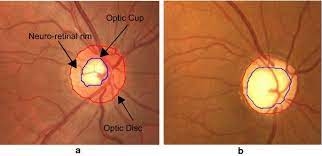A team of investigators from the Yong Loo Lin School of Medicine at the National University of Singapore (NUS Medicine) has found that there is a bidirectional association between chronic kidney disease (CKD) and glaucoma. This is possibly due to underlying common risk factors such as diabetes and hypertension.
CKD involves the gradual loss of kidney function in filtering blood, with evidence of kidney damage for more than 3 months.1 Glaucoma is a condition where there is a build-up of pressure in the eye, resulting in damage to the optic nerve. It affects around 3% of people over 40 in Singapore and its incidence increases with age.2 Poorly controlled glaucoma can eventually lead to permanent loss of vision.
As our population ages, more are at risk of developing chronic diseases such as CKD and glaucoma. The number of Singaporeans diagnosed with CKD has increased significantly from about 4.3 daily new cases in 2011, to about 5.7 daily new cases in 2019, with no sign of abating. There are currently more than 8,500 dialysis patients in Singapore.3
The kidney and the eye are two organs located in separate parts of the body that are not intuitively thought to be associated. They are involved in different systems and perform different functions. The team, however, found that patients with baseline CKD have a 18% higher risk of incident glaucoma. The risk of incident glaucoma increased to 42% in patients with CKD due to diabetes. This association was more prevalent among patients of East Asian ethnicity, including Singaporeans. Reversely, patients with glaucoma have more than 3.6 times higher risk of incident CKD after 10-15 years of follow-up.
Possible explanations for the association include the two diseases sharing common risk factors, such as diabetes, hypertension and cardiovascular disease, as well as common disease processes such as renin-angiotensin system (RAS) dysfunction – in which, a hormonal system is unable to regulate blood pressure, fluid and electrolyte balance, and other functions in the body, other disease processes also include oxidative stress, and inflammation. Causal mechanisms may also play a role in the presence of both diseases, as CKD results in fluid overload and accumulation of toxic metabolites, disturbing the osmotic pressure in the eye, and at the same time accelerating arteriosclerosis, which is the hardening of the walls of the blood vessels, causing microvascular compromise.





